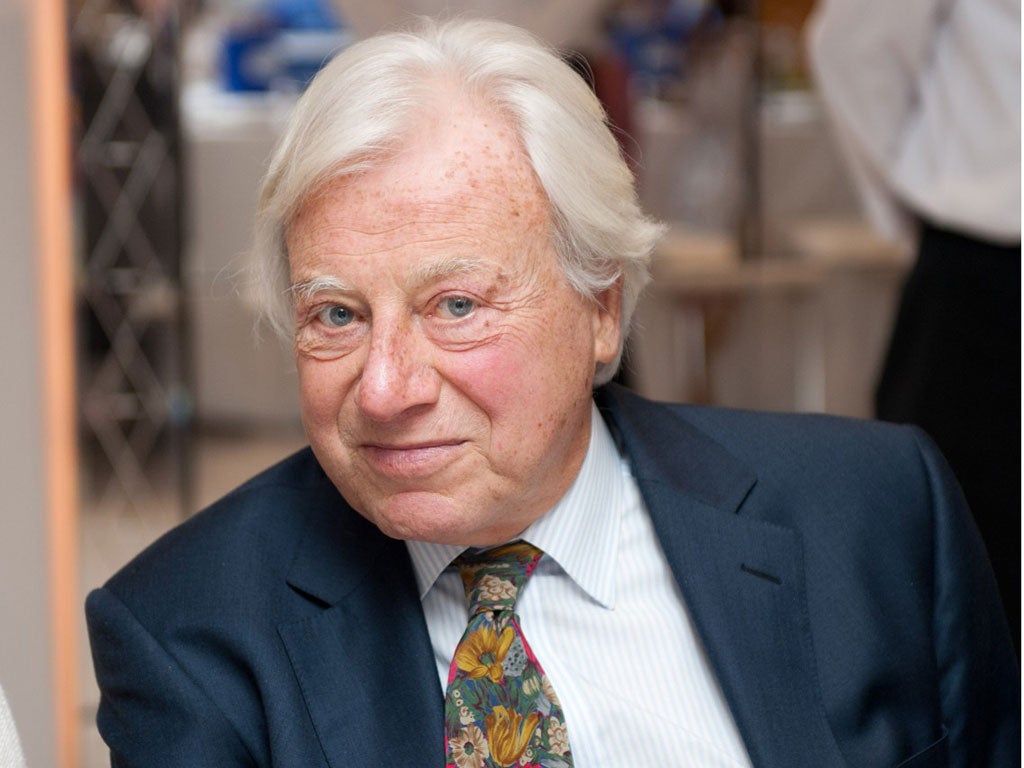Alfred Doll-Steinberg: Oil refinery engineer who fought Lloyd's

Alfred Doll-Steinberg made a significant and pioneering contribution to the design and economics of oil refinery and petrochemical plant design in its early days. Later, his tenacity, analytical 48and robust business skills came into their own when he became the most vocal name in the fight against Lloyd's of London following the insurers' losses of £6 billion and the threat of bankruptcy of thousands of Lloyds names.
Alfred Doll-Steinberg was born in September 1933 in Vienna. His father Marcus worked for the Austrian government and his family's lives were saved when the Austrian Nazis dismissed all Jews from government jobs. The family came to England in 1938 and lived in Nottingham; being Austrian, his father was interned on the Isle of Wight for the duration of the war, and Alfred was later evacuated to the grounds of the Rothschilds' home, Waddesdon Manor in Buckinghamshire.
Doll-Steinberg showed early gifts for mathematics and chemistry and won a scholarship to Gonville and Caius College, Cambridge, where he graduated with a double first. While at Cambridge he published his first papers on chemical engineering matters. He went on to be published widely in major international journals and literature and worked for Foster Wheeler and Shell in London and New York, The Institut Français du Petrole in Paris, later establishing his own engineering consultancy.
Putting into practice years of academic and theoretical Chemical Engineering, he took a formative role in the oil exploration, oil refining and petrochemical industries in the UK, Eastern Europe and the Middle East. This included the building of the oil refinery at Larnaca, Cyprus, and projects drilling for oil in Israel near Haifa in the Negev.
Then, as the dynamic Chairman of the Gooda Walker Action Group and Wellington Action Group from 1991 to 1992, he represented over 2,500 names of two of the worst-hit Lloyd's syndicates; he described "a sea-change in morality at Lloyd's. The 300-year-old principle of uberrima fides – utmost good faith – started to be replaced by the principle of caveat emptor – buyer beware."
He argued that the catastrophic losses were not a result of actual disasters including Piper Alpha and Hurricane Hugo but of the endless reinsurance of the same risk with brokers and underwriters taking a commission at each re-insurance. He succeeded in getting acceptance at the highest level to remedy the reinsurance circuit and effect a change of ethos, which endures today. A £900 million settlement was offered by Lloyd's as a result. This was a pivotal and highly significant change in one of the City's major institutions.
Doll-Steinberg was a lively spirit and a man of letters. He wrote numerous letters and articles in the world's major newspapers and journals on subjects ranging from finance to global warming with typically trenchant and logically structured opinion.
He was a director of several private companies in the UK including British Tours Ltd, which he co-founded in 1958. The company, originally called Undergraduate Tours Ltd, was an important innovation in UK tourism at the time and has taken over a million visitors on private tours around Britain. He was chairman of the technology company Tribeka Ltd, which developed an award-winning solution for the electronic distribution of software, music and movies in operation in the US, Europe and Australia.
Doll-Steinberg retained a lifelong love of chemistry, physics and mathematics and typically sought to encourage the young to follow the rigours of mathematics and natural laws which were so important to him. In 1988 he founded a scholarship at Gonville and Caius, the James Arthur Ramsay Prize, in honour of Professor Arthur Ramsay, a biologist whose work in biology had benefited from his grasp of thermodynamics.
He had a powerful sense of humour that owed more to the Goons than later genre. Frequently this was the lens through which he viewed the many events in which he was to be involved and influence. He read widely and enjoyed cinema, and donated generously to charity. He skied all his active life with his family.
Jason Doll-Steinberg
Alfred Doll-Steinberg, chemical engineer: born Vienna 20 September 1933; married 1965 Gerda (two sons, one daughter); died 9 May 2012.
Subscribe to Independent Premium to bookmark this article
Want to bookmark your favourite articles and stories to read or reference later? Start your Independent Premium subscription today.

Join our commenting forum
Join thought-provoking conversations, follow other Independent readers and see their replies